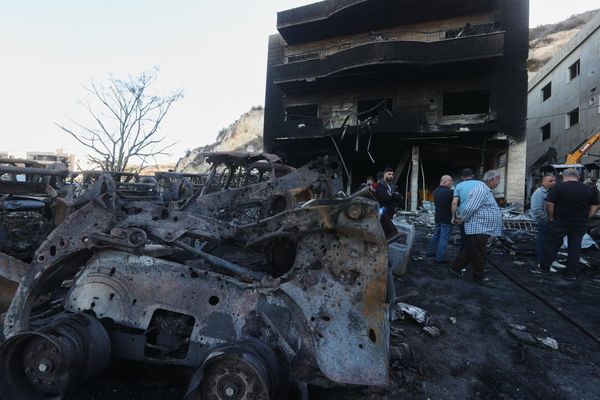
Donald Trump’s global tariffs faced significant skepticism in a federal appeals court on Thursday, as judges investigated whether the president had overstretched his powers just hours before the latest sweeping round of duties is set to kick in.
The full 11-strong bench of the US court of appeals for the federal circuit in Washington DC is considering whether Trump exceeded his authority in imposing “reciprocal” tariffs on a large number of US trading partners.
Judges repeatedly asked if Trump was justified in relying on emergency powers to effectively tear up the US tariff schedule without consulting Congress.
Businesses challenging his strategy accused the White House of engineering a “breathtaking” attempt to force it through, unlike any trade move attempted by a US administration in two centuries.
The 1977 International Emergency Economic Powers Act (IEEPA), which Trump has used to invoke emergency powers and enforce many of his tariffs, “doesn’t even say ‘tariffs’”, one of the judges noted. “Doesn’t even mention them.”
In May a three-judge panel of the court of international trade blocked the import duties on grounds that Trump’s use of IEEPA was unjustified. The appeals court has stayed that ruling pending the outcome of Thursday’s hearing.
“The government uses IEEPA all the time,” said Brett Shumate, assistant attorney general in the justice department’s civil division, representing the administration, to the court. He conceded, however, that it was the first IEEPA had been used to implement tariffs.
The US trade deficit – the gap between what it imports to and exports from the world – has “reached a tipping point”, claimed Shumate, enabling Trump to take emergency action. “It’s affecting our military readiness,” he said. “It’s affecting our domestic manufacturing capability.”
But Neal Katyal, a lawyer representing businesses challenging the tariffs, argued that Trump was laying a “breathtaking claim to power that no president has asserted in 200 years”.
The administration is effectively saying “that our federal courts are powerless; that the president can do whatever he wants, whenever he wants, for as long he wants – so long as he declares an emergency”, Katyal argued.
Trump posted about the hearing on his Truth Social platform on Thursday, calling it “America’s big case”. He said: “If our Country was not able to protect itself by using TARIFFS AGAINST TARIFFS, WE WOULD BE ‘DEAD,’ WITH NO CHANCE OF SURVIVAL OR SUCCESS.”
“Now the tide has completely turned, and America has successfully countered this onslaught of Tariffs used against it,” the president claimed. “ONE YEAR AGO, AMERICA WAS A DEAD COUNTRY, NOW IT IS THE ‘HOTTEST’ COUNTRY ANYWHERE IN THE WORLD.”
The challenge to Trump’s use of emergency powers has been brought by five small businesses acting alongside 12 Democratic-controlled states. They argue that the IEEPA was designed to address “unusual and extraordinary” threats arising in national emergencies, and that the reason for the tariffs do not meet that standard.
The small businesses are being represented by a libertarian public interest law firm, the Liberty Justice Center. The non-profit is supported by billionaire rightwing donors including Robert Mercer and Richard Uihlein, who, paradoxically, have also been major backers of Trump’s presidential campaigns.







